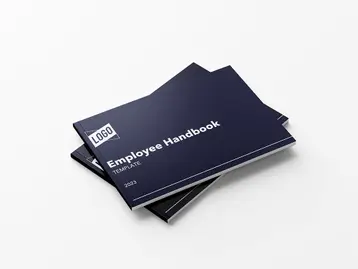
Your employees’ personnel files hold valuable information regarding their employment at your company. This data is often used to inform important actions like promotions and layoffs. At worst, it can be used as evidence in legal proceedings brought by a current or former employee. Clearly, there’s much at stake when it comes to personnel records. What should you do, then, if an employee asks to see their personnel file? Should you grant them access? Or, can you refuse?
The short answer is that federal law does not require private-sector employers to give employees access to their personnel files — but many states do.
Before getting into the state side of things, let’s look at the general consensus on personnel files.
What should go in a personnel file?
The majority of an employee’s work-related documents should go in their personnel file. Typically, this includes:
- Job description
- Job application, resume, and cover letter
- Offer letter for job
- Acknowledgement/receipt of employee handbook
- Tax withholding forms
- Employee benefits forms
- Emergency contacts
- Performance appraisals
- Disciplinary actions
- Promotions, demotions, transfers, etc.
- Complaints from clients or peers
- Recognition for exemplary performance
- Attendance records
- Training records
- Employment contracts or agreements
- Documentation regarding termination
Employers should start a personnel file for each new employee on their hire date. In addition, periodically review the file to verify whether the information is accurate, current, and complete.
What should not go in a personnel file?
Avoid putting the following items in employees’ personnel files:
Medical records
Keep these in a separate file from the employee’s personnel file. They are confidential records, and only a few authorized individuals should have access to them. Moreover, laws such as the Americans with Disabilities Act and the Health Insurance Portability and Accountability Act have strict rules for employers when it comes to protecting employees’ health-related information.
Form I-9
The U.S. Citizenship and Immigration Services suggests
“that employers keep Form 1-9 separate from personnel records to facilitate an inspection request.”
Irrelevant information
Do not put anything that’s not job-related in the personnel file. This includes information about the employee’s personal life and their political beliefs. Now, let’s dive into the state perspective.
State laws on employees’ right to access their personnel records
Many states have enacted laws giving current and former employees the right to view and copy certain contents in their personnel file. The rules are state-specific, but may involve these factors:
- What constitutes “personnel file”
- Which workers can receive access. For example, current and former employees
- Which documents current and former employees can and cannot access
- How the request should be made — such as verbally or in writing
- Whether the employer can charge the recipient a fee for copying the records
- Conditions for accessing personnel records, such as time of day and from what location
- The deadline for when employers must adhere to the request
- The current or former employee’s right to rebut the information in their personnel file
- Frequency of requests. For example, current employees may be able to request access at least once per year, and former employees no more than once after termination
- Employers who are required to comply with the law. This might be all employers or those with a specific number of employees.
States that allow employees to view their personnel records
According to the legal website Nolo, these states include:
- Alaska
- California
- Colorado
- Connecticut
- Delaware
- Illinois
- Iowa
- Maine
- Massachusetts
- Michigan
- Minnesota
- Nevada
- New Hampshire
- Oregon
- Pennsylvania
- Rhode Island
- Washington
- Wisconsin
What personnel information does state law require employers to provide?
This varies by state, so you’ll need to check state law for details. According to Nolo, “employees typically have the right to see evaluations, performance reviews, and other documents that determine a promotion, bonus, or raise. However, they might not have the right to view letters of reference from former employers, test results, or records of an investigation into criminal conduct or violation of workplace rules.”
A state may require employers to notify employees when negative information is placed in their personnel file. Some states go further by mandating that employers give employees a copy of the negative information when delivering the notice.
The deadline to honor a current or former employee’s request differs by state.
For example, in California, employers must let current and former employees inspect their personnel records within 30 days of receiving the written request. In Connecticut, however, current employees must receive the records within 7 days, and former employees within 10 days.
Beware of penalties
The state may assess penalties on employers who fail to comply with a current or former employee’s records request. For example, the penalty in California is $750, which must be paid to the current employee, former employee, or the California Labor Commissioner.
Creating an “access to personnel file” policy
If your employees are permitted to access their personnel file, make sure you have a clear policy outlining the procedures. The policy should address applicable requirements under state law plus any allowances made at the company level. The policy may cover the following:
- Who is responsible for maintaining personnel records (normally, the HR department)
- A statement acknowledging that personnel files are considered confidential
- The conditions under which managers and supervisors can access current and former employees’ personnel files
- The process for granting access to government agencies or law enforcement officials who request inspection of personnel records
- The terms under which current and former employees can access and copy their personnel records, including the steps they need to take
- Which personnel information current and former employees are entitled to see and copy.
For best results, have your legal counsel prepare the policy based on your unique business requirements, instead of attempting to develop it on your own. This will help ensure legally sound practices and documentation. Effectively communicate the policy to your employees, and include the necessary information in your employee handbook. This way, your employees will be aware of their right to access their personnel file.
This communication is for informational purposes only; it is not legal, tax or accounting advice; and is not an offer to sell, buy or procure insurance.
This post may contain hyperlinks to websites operated by parties other than TriNet. Such hyperlinks are provided for reference only. TriNet does not control such web sites and is not responsible for their content. Inclusion of such hyperlinks on TriNet.com does not necessarily imply any endorsement of the material on such websites or association with their operators.






